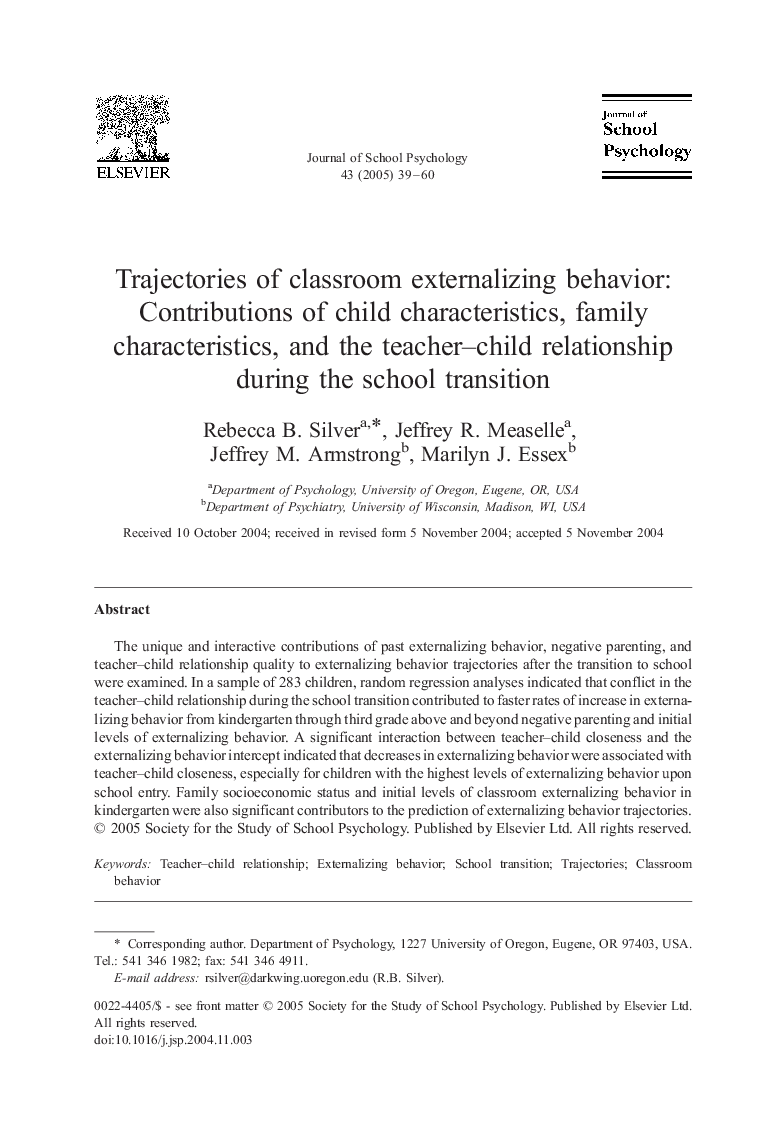| Article ID | Journal | Published Year | Pages | File Type |
|---|---|---|---|---|
| 10315282 | Journal of School Psychology | 2005 | 22 Pages |
Abstract
The unique and interactive contributions of past externalizing behavior, negative parenting, and teacher-child relationship quality to externalizing behavior trajectories after the transition to school were examined. In a sample of 283 children, random regression analyses indicated that conflict in the teacher-child relationship during the school transition contributed to faster rates of increase in externalizing behavior from kindergarten through third grade above and beyond negative parenting and initial levels of externalizing behavior. A significant interaction between teacher-child closeness and the externalizing behavior intercept indicated that decreases in externalizing behavior were associated with teacher-child closeness, especially for children with the highest levels of externalizing behavior upon school entry. Family socioeconomic status and initial levels of classroom externalizing behavior in kindergarten were also significant contributors to the prediction of externalizing behavior trajectories.
Related Topics
Social Sciences and Humanities
Psychology
Applied Psychology
Authors
Rebecca B. Silver, Jeffrey R. Measelle, Jeffrey M. Armstrong, Marilyn J. Essex,
